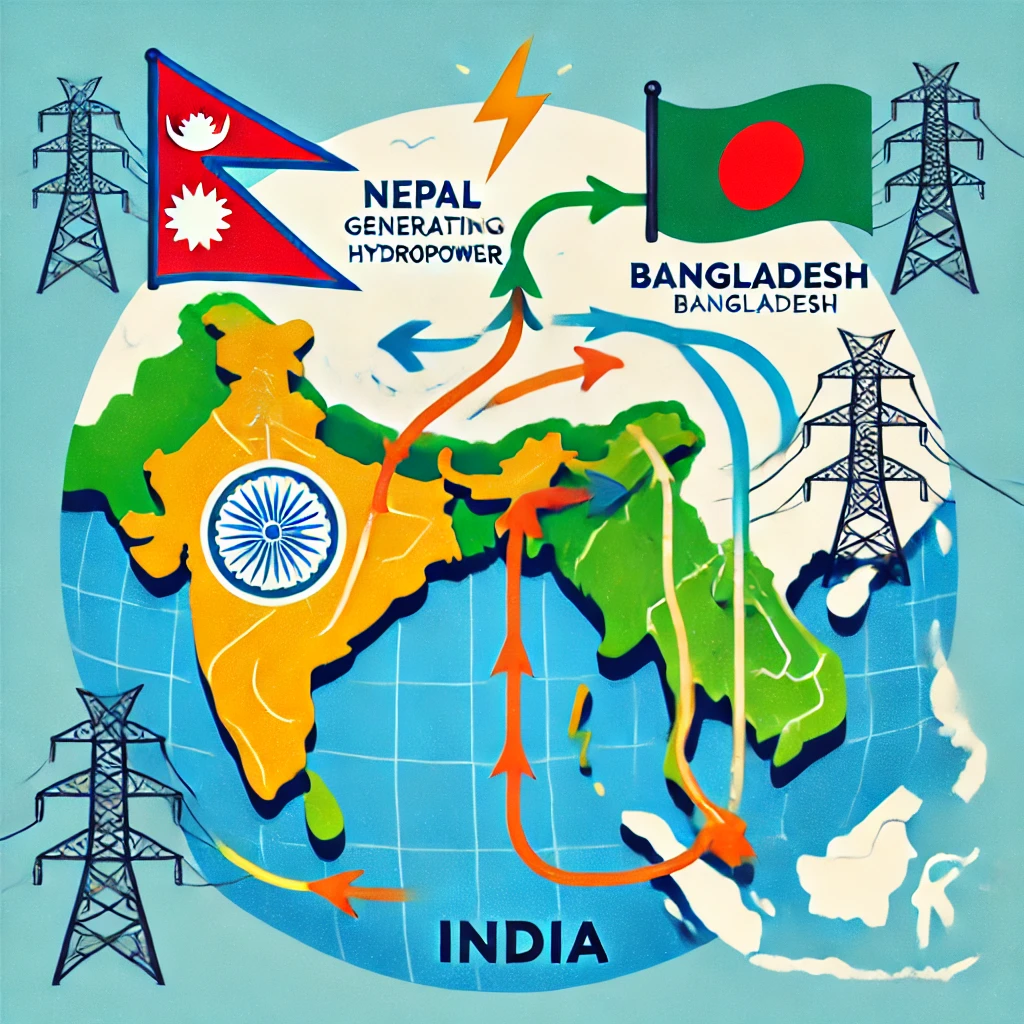Nepal's Electricity Export to Bangladesh: Key Insights

Nepal's Electricity Export to Bangladesh: Key Insights
Nepal is exporting electricity to Bangladesh, even though it has its own electricity shortages and relies on imports from India during certain periods. This arrangement is part of a strategic initiative to promote regional cooperation and boost Nepal’s revenue by selling surplus electricity generated during the wet season. Nepal, India, and Bangladesh have signed a tripartite agreement, allowing Nepal to export electricity through India’s transmission infrastructure.
Why is Nepal Exporting Electricity?
Nepal generates a surplus of electricity during the wet season from its hydropower plants. To capitalize on this, Nepal exports the excess electricity to neighboring countries. While Nepal has to import electricity from India during the dry season, the exports help in balancing Nepal's economy. Bangladesh, on the other hand, is keen to increase its renewable energy sources and has agreed to purchase electricity from Nepal. India plays a vital role in this arrangement by providing the necessary transmission infrastructure for this energy trade.
Challenges Faced by Nepal
Nepal has faced significant challenges, including natural disasters such as floods that have disrupted electricity generation and distribution. Moreover, political instability in Bangladesh has added uncertainty to the agreement, especially during critical moments when deals were set to be signed.
India's Role and Likelihood of Objections
India is unlikely to object to this agreement, as it plays a crucial role in facilitating the energy trade. Since Nepal and Bangladesh do not share a direct border, India’s transmission lines, such as the Dhalkebar-Muzaffarpur line, are essential for transporting electricity between the two nations. India's involvement not only strengthens its leadership in the region but also promotes cross-border energy cooperation, which aligns with its strategic interests.
Moreover, India stands to benefit from the agreement as it fosters economic cooperation and regional energy security. Political or humanitarian concerns, such as Bangladesh's treatment of minorities, are not expected to interfere with the technical aspects of the energy trade.
Geopolitical Factors
The deal involves India’s infrastructure, and India has been a key facilitator in enabling this export agreement between Nepal and Bangladesh. While there is no direct evidence of pressure from the U.S. or China, the deal aligns with regional energy cooperation goals, contributing to economic and political stability in the region.
Issues Related to Bangladesh
While Bangladesh has faced political turmoil and criticism for its treatment of minorities, particularly Hindu communities, these issues have not significantly affected the energy trade agreements with Nepal and India. The primary focus of these agreements has been economic cooperation and energy security.
Sources:
- Nepal_electricity_export
- Bangladesh_energy_trade
- India_electricity_transmission
- Nepal_hydropower
- regional_energy_cooperation
- electricity_trade_agreement
- Nepal_India_Bangladesh_electricity
- energy_grid
- South_Asia_energy_trade
- cross-border_electricity_trade
- hydropower_electricity_export
- Dhalkebar-Muzaffarpur_transmission
- renewable_energy_South_Asia
- power_transmission_agreement
- economic_cooperation_in_South_Asia
- Political Leaders
- Art & Crafts
- Dance & Music
- Sanatan Dharma
- Education & Training
- Food & Drinks
- Gaming
- Health & Fitness
- Home & Gardening
- Literature & Culture
- Love
- Medicine & Ayurveda
- Motors & Vehicles
- Movies & Cinema
- Parenting
- Politics
- Science & Technology
- Shopping
- Social Media
- Spirituality
- Sports
- War & History
- Yoga & Meditation
- Travel & Tourism
- Natural Disaster
- Business & Startups
- DIY & Home Decor
- Finance
- Personal
- News
- Pet Lovers
- Wild Life & Nature
- Podcast & Audio Books
- Poetry
- Law & Order
- Moral Stories
- Jokes & Humour
- Другое

